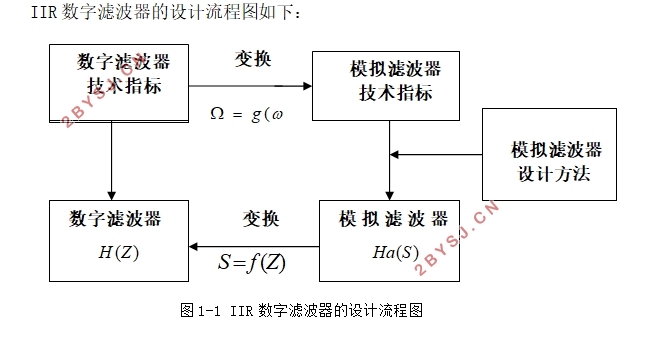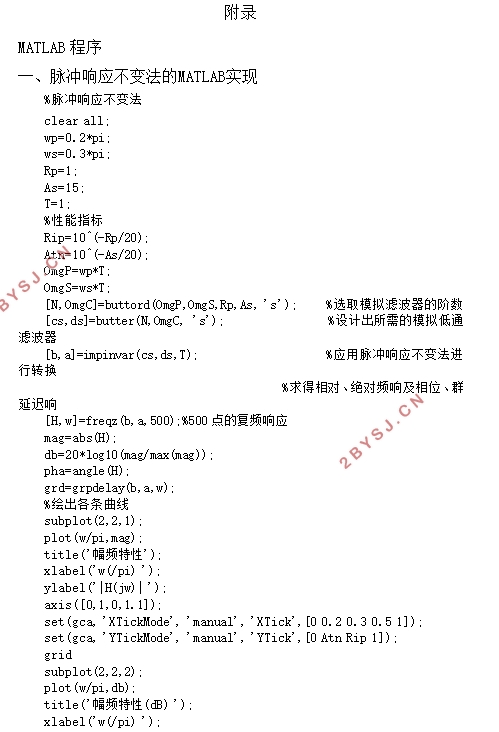IIR数字滤波器的设计
无需注册登录,支付后按照提示操作即可获取该资料.
IIR数字滤波器的设计(论文9500字,附MATLAB程序代码)
摘 要
我们当目前处在信息社会,数字信号处理技术得到普遍发展,其算法和实际运用随着社会的进步获得了极大地提高。数字滤波器为数字信号处理过程中很关键的组成成分,全部的数字信号处理系统里基本上都有它的出现。本文主要介绍实现IIR 数字滤波器的原理与过程,同时,在本文中,对一些有关滤波器的相关基本概念进行了各种各样的研究学习,以及有关于它的一些设计方法也一并被提到。众所周知,目前我们一般采用两种方法来研究数字滤波器的设计,它们分别是:脉冲响应不变法和双线性变换法,通过这两类方案来对IIR数字滤波器进行优化实现。在掌握2类方案的基础上,对MATLAB语言进行完善,借助MATLAB可视化程序生成了幅频和相频特性曲线,最终实现滤波器的最优化的设计。
关键字: IIR 数字滤波器 Matlab 脉冲响应不变法 双线性变换法
Design of IIR Digital Filter
Abstract
At present, we are in the digital era, digital signal processing technology by the people's attention, its theory and algorithm obtained the rapid development with the development of computer technology and microelectronics technology, is widely used in speech and image processing, digital communication, spectrum analysis, pattern recognition, automatic control and other areas. Digital filter is one of the most important parts of digital signal processing, and it is almost in the digital signal processing system. General methods and procedures for designing IIR digital filters. The basic situation of the digital filter is discussed, and the analysis of the digital filter realization method for IIR digital filter design. There are two methods (pulse response method and bilinear transformation method) to realize the IIR digital filter design. In the introduction of two methods under the premise of the design process, through the MATLAB visualization program, the amplitude frequency and phase frequency characteristic curves are given.
Key Words: IIR;digital filter; MATLAB; impulse response; bilinear transformation;


目录
摘 要 I
Abstract II
第一章 绪论 1
1.1 课题的研究背景和意义 1
1.2 国内外研究现状 1
1.3 研究内容和技术方法 2
第二章 数字滤波器 6
2.1 数字滤波器的概念 6
2.2 IRR滤波器的概念及特征 6
2.3 FIR滤波器的概念及特征 7
2.4 IRR与FIR滤波器的比较 8
第三章 MATLAB简介 10
3.1 MATLAB的概要 10
3.1.1 MATLAB的发展历史 10
3.1.2 主要的功能 10
3.2 MATLAB的优点与特性 11
3.2.1 MATLAB的优点 11
3.2.2 MATLAB的语言特性 11
第四章 IIR数字滤波器的设计 12
4.1脉冲响应不变法介绍 12
4.2脉冲响应不变法设计IIR滤波器 12
4.3双线性变换法介绍 13
4.4双线性变换法设计IIR数字滤波器 14
第五章 基于MATLAB的IIR滤波器设计 16
5.1 脉冲响应不变法的MATLAB实现 16
5.2 双线性变换法的MATLAB实现 20
总结 26
结语 27
参考文献 28
致谢 29
